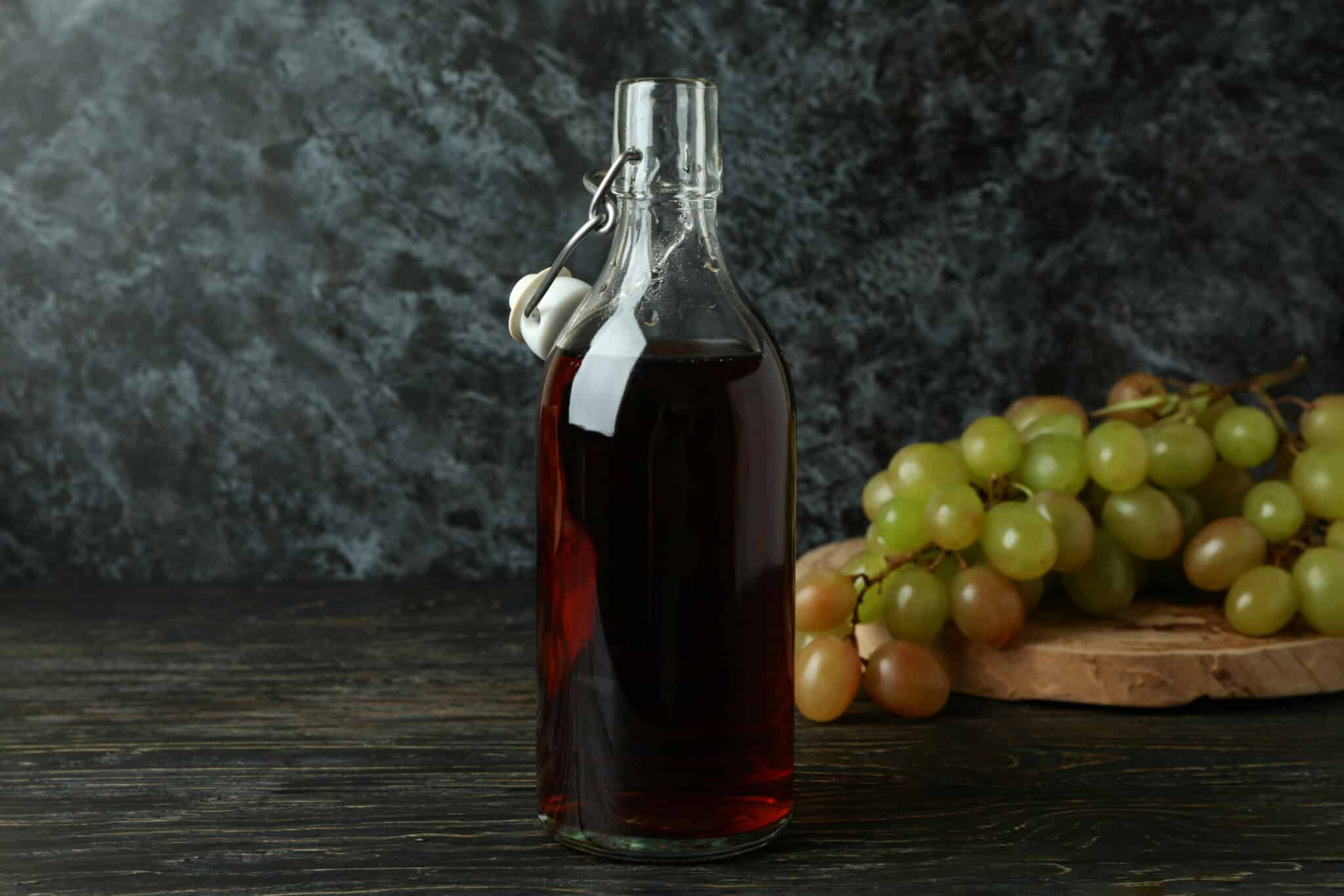Whether you’re handling a gourmet recipe or making a homemade batch of meatballs, vinegar has always played an integral part in culinary history. And it comes in numerous varieties, each with a distinct acidity and flavor effect. But of the many types of vinegar available, red wine vinegar happens to be one of the most sophisticated. And when it’s called for in a recipe, many believe they can’t do without it and feel stuck when they find themselves lacking this ingredient.
But tons of red wine vinegar substitutes exist, and you’ll find a handful of them here. And they’ll perform just as great in your cooking, whether it’s a pot of chimichurri or a speedy ranch dressing. But before we explore these replacements, let’s find out what red wine vinegar is and how it got its signature flavor and tang.
What is red wine vinegar?
As the name implies, red wine vinegar is derived from red wine. A vinegar mother or live starter is first gotten and then added to a combination of water and red wine. This mixture is then stored in a glass container, where it’s left to ferment. During this process, the alcohol in the wine is oxidized, causing it to ferment. This results in a tangy liquid that retains its grape flavor and color from the red wine source. Red wine vinegar has been used in Mediterranean cuisine for centuries, but today, they’ve found its way into dishes of many other regions as well.
Uses in recipes
Red wine vinegar is added chiefly to impart a dish’s moderate acidity and mild sweetness. It works in many ways and creates a splendid effect in tons of recipes. It’s primarily used in marinades and vinaigrettes, where its fruity note boosts flavor while softening tissues in the latter. But it also features in cooked recipes where its sour taste enhances the umami level of the dish.
Red wine vinegar also helps to brighten savory dishes with its fruity note. It’s also an excellent option for pickling, and its red hue improves the aesthetic nature of many recipes. And the acetic acid and probiotic content of this condiment help improve digestion and reduce blood sugar levels.
The many uses of red wine vinegar are observable in tons of dishes, some of which include;
- Potato salad
- Caramelized onions
- Pork chops
- Green salad
- Poule sauté au vinaigre
- Roasted root veggies
- Chicken pitta
- Braised red cabbage
- Pasta salad
- Steak dishes
- Traybake
- Curries
- Mexican beef tostadas
- Meatballs
- Crunchy fish cups
- Slow-cooked brisket
- Prawn and chorizo pasta
- Duck a l’orange
- Sautéed tofu
- Sauces
- Marinades
- Stir-fried broccoli
- Slaws
- Greek salad
- Chimichurri
- Chicken fricassee
- Kebabs
- Beef shin and blue cheese cobbler
- Gazpachos
- Crispy chicken
- Blue cheesecakes
- Sautéed mushrooms
- Tuna
- Roasted aubergines
- Pickling recipes
- Braised chicken
- Turkish lamb chops
Substitutes for red wine vinegar
It can be quite a pain to need a bottle of red wine vinegar, only to find out you’ve run out. If such ever happens, feel free to try out any of these substitutes listed below;
White wine vinegar
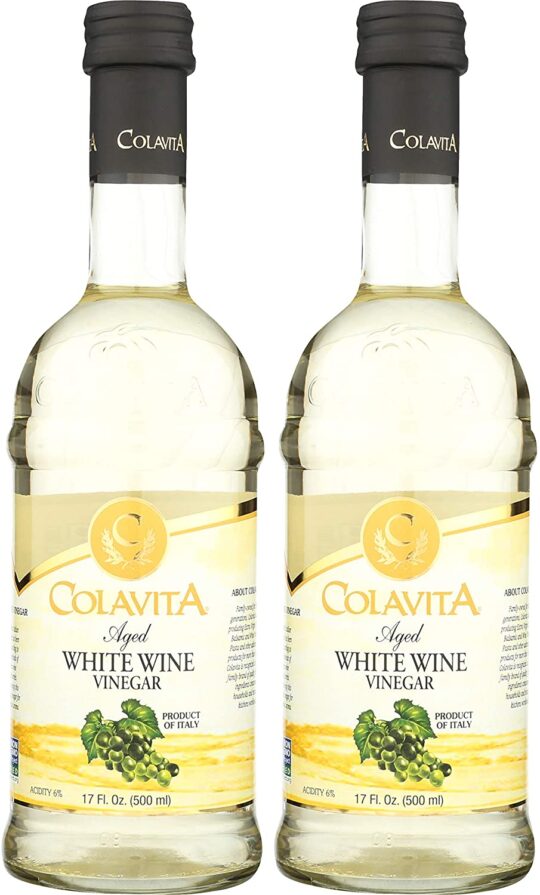
If red wine vinegar is a ying, white wine vinegar is its yang. Both types are made from similar grapes, meaning their flavor profiles are pretty close. And they share a similar acidity, meaning white wine vinegar will work just as well in such recipes.
But note that this substitute works best when the original ingredient is required in small amounts. Also, white wine vinegar isn’t as intensely-flavored as red wine vinegar. But it’ll still work in equal amounts when needed and can be added to braised chicken, sauces, brines, and vinaigrettes.
White vinegar and red wine
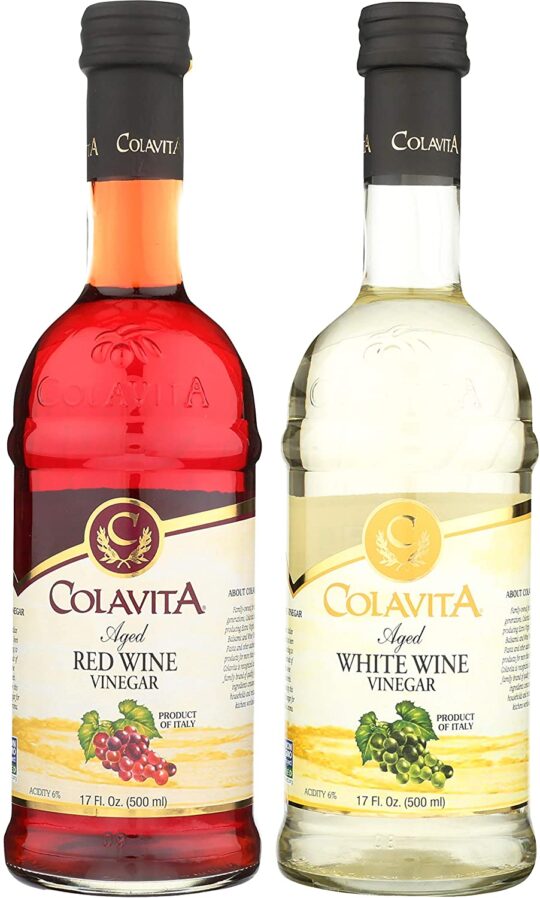
One easy hack most people use to replace red wine vinegar is combining some white vinegar with a good bottle of red wine. This combo is convenient; it works in almost anything, from dressings t vinaigrettes, sautéed vegetables, crispy chicken, marinades, and caramelized beef. While the vinegar supplies the needed acidity and tang, the red wine keeps the final flavor true to its grape source, creating an intense copycat that can be easily mistaken for the real thing.
To use this substitute, combine one part red wine with three parts white vinegar, then leave it for a few hours, so they blend. Afterward, check if the flavor is up to your preference, and adjust the content as required.
Balsamic vinegar
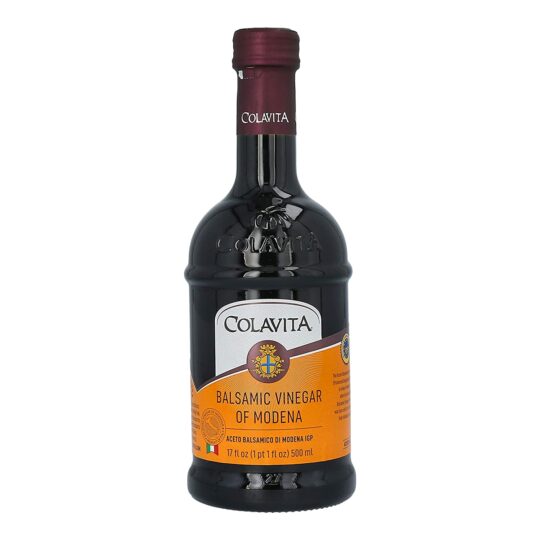
Another popularly used vinegar ingredient in our kitchen is balsamic vinegar. It’s commonly called for in salad dressings, marinades, vinaigrettes, brines, and sauces, and its distinctive flavor and appearance make it a highly-appreciated condiment. It works as an equal ration replacement for red wine vinegar in salad dressings since it’s also made from fermented grape products.
But unlike red wine vinegar, balsamic vinegar is made from grape juice and contains undertones of fig, molasses, and cherry. It’s also thicker, sweeter, and darker, so it can’t be used in equal amounts for recipes like marinades and pizza dressings. Instead, it should first be diluted with red wine or white vinegar at equal parts to get a decent red wine vinegar substitute.
Lemon or lime juice
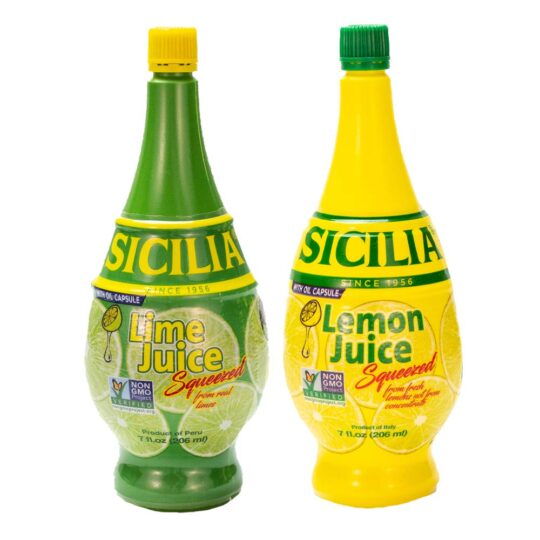
If you seek a non-vinegar option, you can pick either lemon or lime juice as a replacement. This option works mainly when the recipe doesn’t dwell on the particular red wine vinegar flavor but the acidity. Lemon and lime juice are highly acidic and will provide the same functions expected in such light from red wine vinegar.
Though their acidic levels are the same, lemon juice is sweeter than lime juice and will show in the recipe, so take note. And you can use equal amounts of it, especially when the need is to acidulate water in the recipe.
Tamarind paste
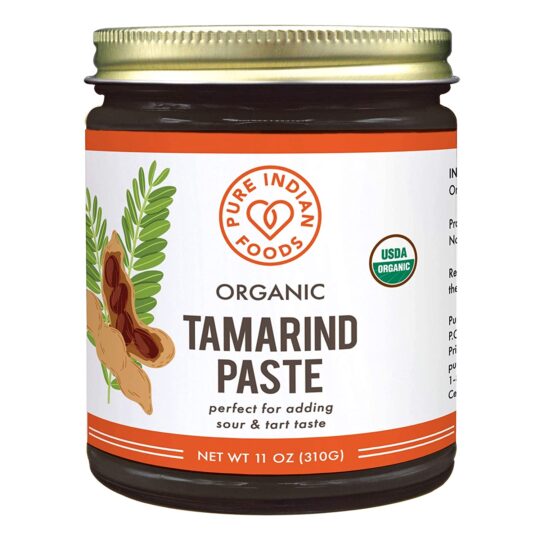
This substitute is gotten from sour tamarind, so you’re sure to get the intense tangy taste expected from red wine vinegar. It’s also commonly used in Asian and Indian dishes and shares a semblance in flavor with red wine vinegar. Tamarind paste may also be challenging to find, as it’s primarily sold in specialty stores, but it makes a handy replacement for cases where you need both acidity and flavor.
But note that tamarind paste works best in marinades for meats due to its intense flavor. And you’ll only need a bit of it- about one or two teaspoons- to replace red wine vinegar. Its robust flavor also means you can only apply in recipes that call for small amounts of red wine vinegar.
Frequently asked questions (FAQs)
What can I use instead of red wine in cooking?
Red wine vinegar makes an excellent non-alcoholic replacement for red wine in cooking, and it’s derived from the same base and will deliver similar flavor and acidic results.
Are red cooking wine and red wine vinegar the same?
Not precisely, though they share the same source: red grapes. But red wine vinegar is prepared from soured red wine, and its signature bite is from the sugars converted to acetic acid.
How much alcohol is in red wine vinegar?
Red wine vinegar contains zero alcohol, though derived from an alcoholic source. The conversion process of the red wine turns it into acetic acid, thus eliminating the presence of alcohol in the resultant condiment.
Conclusion
Red wine vinegar is an impressive condiment to have in the kitchen, so it’s understandable why anyone would panic if they’ve run out. But these substitutes can easily replace it in many dishes, so you won’t have to worry about running to find a fresh supply at the grocery store. Plus, they give you a more comprehensive range of options and the chance to explore different possibilities in your numerous culinary experiences.
